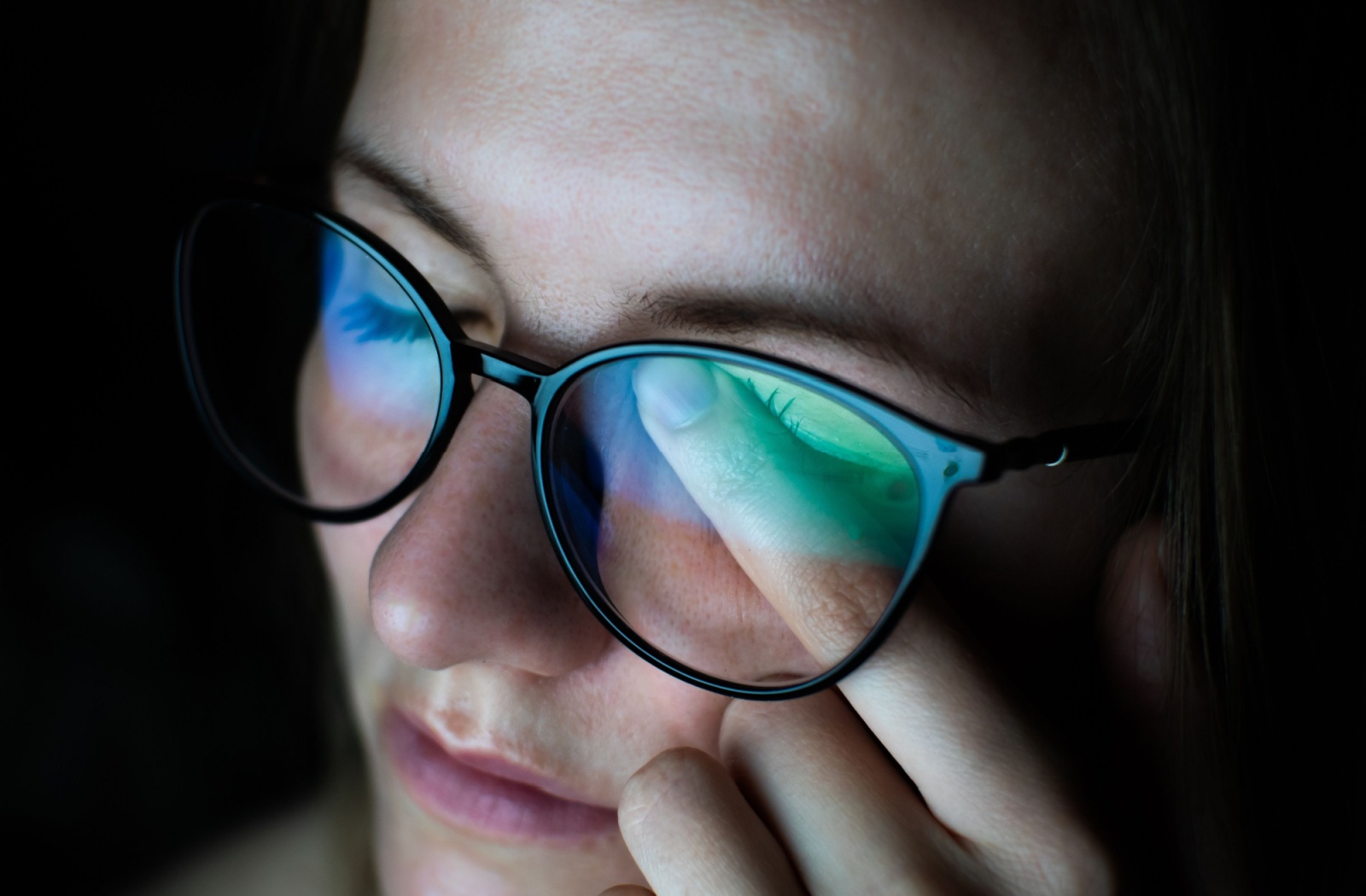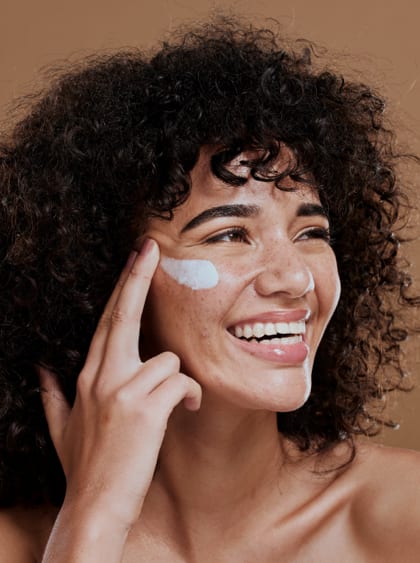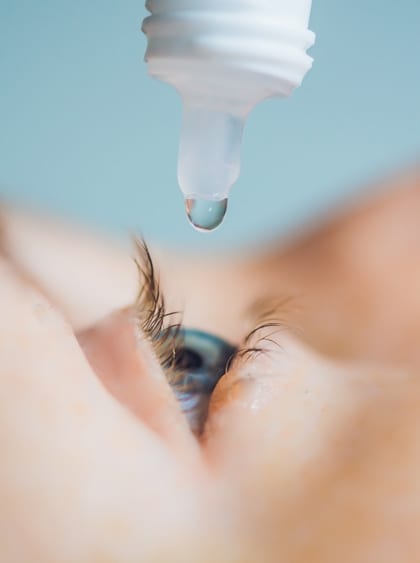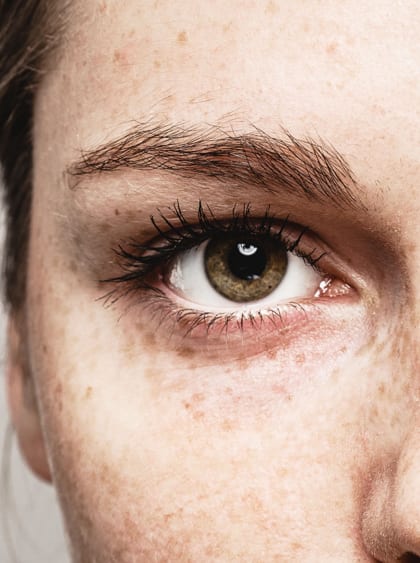If you’ve been experiencing blurry vision, especially after prolonged hours of work or exposure to screens, dry eye syndrome might be the culprit. Dry eyes can cause blurry vision by disrupting the natural tear film that your eyes need to maintain clarity.
While this may not seem alarming at first, blurry vision (and dry eye!) can impact day-to-day tasks and quality of life. Fortunately, by talking to your optometrist, you can see a world without dry eyes!
What Is Dry Eye Syndrome?
Dry eye syndrome occurs when the eyes either fail to produce sufficient tears or produce tears of poor quality. Tears play a vital role in keeping your eyes moist, comfortable, and protected. Tears aren’t just water; they consist of 3 critical layers that work harmoniously together to form the tear film that safeguards your vision. These layers are:
- The inner mucus layer
- The middle watery layer
- The outer oily layer
However, when your tear production or quality falters, the result can be a cascade of uncomfortable symptoms, including blurry vision, which can make simple tasks like driving or reading much harder.
Some of the common symptoms of dry eye include:
- Dryness or grittiness
- Burning or stinging sensation
- Red or irritated eyes
- Sensitivity to light
- Blurred vision
- Watery eyes without any relief
Blurred vision often interferes with the safety and productivity of everyday life, which can make these symptoms especially concerning. To restore your vision, you’ll likely need to address the root causes behind your dry eye.
Why Do Dry Eyes Cause Blurry Vision?
Blurry vision caused by dry eyes is often linked to the interplay between your tear film and your eye’s optical surface. Here are some contributing factors:
Uneven Tear Film
The tear film’s outer oily layer has a fairly well-known purpose. It helps prevent the other layers from evaporating. However, it’s also crucial for creating a smooth optical surface over the eye.
When the tear film breaks down due to dryness or poor-quality tears, light scatters rather than focusing correctly, leading to blurry or fluctuating vision.
Corneal Damage
Chronic dryness can cause microscopic damage to your cornea, the clear front surface of your eye. Even minor abrasions can distort the passage of light, further impacting your vision.
Persistent Inflammation
Inflammation triggered by dry eye syndrome can irritate and swell the eye’s surface. This further disrupts the tear film and compromises overall clarity, especially when inflammation is prolonged or untreated.
Excessive Tear Production
When you get something like dust in your eye, what happens? Your eyes start to water. This is a reaction to irritation and an attempt to clear out any debris. It’s also why dry eyes can actually lead to excessive tears as your body attempts to compensate for dryness.
Unfortunately, these “reflex tears” either lack the balanced composition necessary for proper lubrication or else evaporate too quickly, which means they’re ineffective at restoring clear vision.
Factors That Contribute to Dry Eye Syndrome
Identifying the underlying cause of your dry eyes is the first step in finding the relief that works for you. Some of the most common contributors include:
- Smoking
- Extended screen time, leading to reduced blinking
- Air-conditioning, heating, wind, smoke or other drying conditions
- Aging, as tear production tends to decrease with age
- Health conditions, like diabetes, thyroid issues, or rheumatoid arthritis
- Hormonal changes caused by pregnancy, menopause, or contraceptive use
- Medications, such as antihistamines, antidepressants, and diuretics
- Wearing contact lenses for extended periods

Managing & Treating Dry Eyes
Fortunately, dry eye syndrome and the blurry vision it causes are highly treatable. Working with your optometrist helps determine the best treatment options for your symptoms and lifestyle. Some popular treatments include:
Artificial Tears & Prescription Eye Drops
Over-the-counter artificial tears offer temporary relief by replenishing lost moisture. Choose preservative-free options if you plan to use them frequently.
For more severe cases, we may recommend prescription treatments, such as anti-inflammatory eye drops that boost tear production or alleviate redness and irritation.
Healthy Lifestyle Adjustments
Small changes can go a long way in minimizing dryness:
- Take regular breaks during screen time to reduce eye strain.
- Use a humidifier in your space to maintain proper moisture levels.
- Wear protective sunglasses outdoors to guard against wind and UV rays.
- Stay hydrated and incorporate omega-3 fatty acids into your diet.
- Applying a warm compress to your eyes a few times a week can help clear blocked oil glands.
These adjustments may not be effective for everyone. If in doubt, talk to your optometrist.
Professional Treatments
For persistent symptoms, we recommend therapies to target underlying issues like meibomian gland dysfunction. Options may include:
- Intense pulsed light therapy (IPL): Using precise light pulses, this treatment melts away debris from clogged oil glands, improving tear quality.
- Radio frequency treatments (RF): Clears oil glands with gentle heat while stimulating blood flow to the area.
- BlephEx/Zest Treatment: Gently exfoliates the eyelid margin to remove bacteria and debris, improving eye health.
- Meibomian Gland Expression & Debridement: Expression physically massages and clears blocked glands, and debridement removes keratinized skin to restore functionality.
When to Consult an Eye Doctor
Occasional dryness is common and usually manageable, but symptoms like persistent blurry vision or sharp discomfort should prompt a visit to your eye doctor. Leaving severe dry eyes untreated can lead to long-term difficulties, such as chronic inflammation or corneal damage.
If you notice additional symptoms like sudden vision changes, extreme sensitivity to light, or severe eye pain, seek medical attention immediately.
See the World Clearly With MEye Health
Your eyes deserve a rest. Don’t settle for blurry vision or constant irritation when relief is within reach. Whether you’re struggling with occasional dry eyes or persistent blurry vision, MEye Health is equipped to help you find the right treatment tailored to your needs. Book an appointment today and see why we’re a trusted partner in eye health!






















